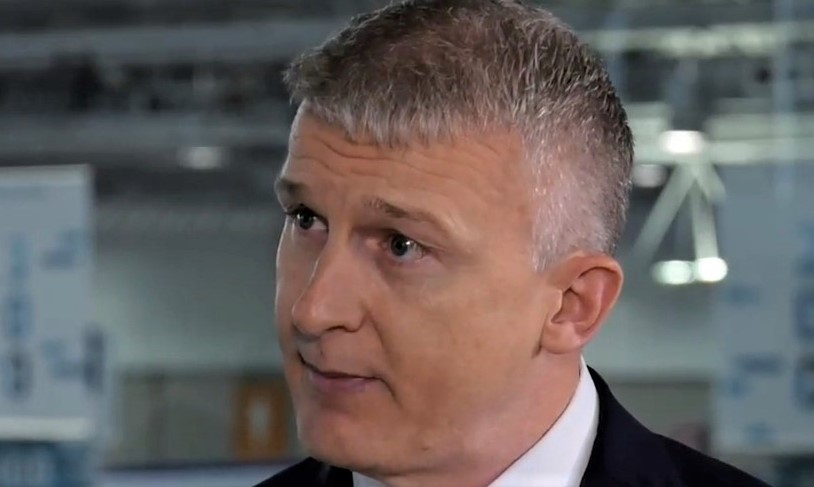Those are the three words that come to mind when I think about military in the field. They’re also critical when they’re not in the field.

The aircraft carrier Theodore Roosevelt carries 4,800 men and women, all sailors trained to perform specific jobs that ultimately ensure the safety of Americans at home and abroad.
However, Captain Brett Crozier never expected the enemy to be a contagious virus that would quickly take down a number of his crew. When COVID-19 was discovered aboard, Crozier pleaded with military officials in Washington to help in what was quickly becoming a desperate situation.
“This will require a political solution, but it is the right thing to do,” Crozier wrote. “We are not at war. Sailors do not need to die. If we do not act now, we are failing to properly take care of our most trusted asset — our Sailors. …
Crozier and other officials who are charged with soldiers and sailors directly under their command have earned their place by demonstrating the best qualities of decision-making and character.
When Crozier was relieved of command after his letter had been leaked (by an unknown source), Acting Navy Secretary Thomas Modly not only criticized the decision and letter by Crozier, he made the mistake of publicly chastising the carrier captain in an announcement to the crew of the Roosevelt. Needless to say, the crew’s reaction was immediate. Modly was met with boos and cat calls. They understood that duty not only means courage in battle, but the courage to speak out, even when it costs more than you want to pay. And Crozier paid when he had been stripped of his command of the Roosevelt.
Writing, respectfully, but forcefully on behalf of his crew, was his sacrifice.
Crozier wrote, “4,000 young men and women on board the TR is an unnecessary risk and breaks faith with those Sailors entrusted to our care.”
Duty, as Crozier saw it, not only involved his duty to military commanders above him, but his responsibility to the nearly 5,000 sailors directly under his command.
While the Navy secretary was forced to resign, it’s important to remember that those on the frontline of any battle often face actions that challenge their decision making and courage. Right now, that frontline involves doctors, nurses, paramedics and others who continue to put their lives at risk every day for the sake of their patients.
The most demonstrative comparison to Captain Crozier is “Rick Bright, the scientist who alleges he was removed as the leader of the federal agency working on a coronavirus vaccine because he resisted efforts to ‘provide an unproven drug on demand to the American public,’ ” The Washington Post reports (April 23).
Removed and unceremoniously placed in a position where he cannot actively contribute to finding an effective vaccine for the coronavirus delays and puts lives at risk. But Bright, who has a doctorate in immunology and molecular pathogenesis and has spent his entire career in vaccine development, wasn’t going quietly. Like Captain Crozier, he publicly put forth his own statement.
“…clashing with political appointees at the Department of Health and Human Services over what ideas made the most scientific sense to pursue,” The Posts writes, Bright stated that he was ‘involuntarily transferred to a more limited and less impactful position at the National Institutes of Health. Sidelining me in the middle of this pandemic and placing politics and cronyism ahead of science puts lives at risk and stunts national efforts to safely and effectively address this urgent public health crisis,’ he wrote.
“I also resisted efforts to fund potentially dangerous drugs promoted by those with political connections,” Bright wrote. “Specifically, and contrary to misguided directives, I limited the broad use of chloroquine and hydroxychloroquine, promoted by the Administration as a panacea, but which clearly lack scientific merit.
“While I am prepared to look at all options and to think ‘outside the box’ for effective treatments, I rightly resisted efforts to provide an unproven drug on demand to the American public. I insisted that these drugs be provided only to hospitalized patients with confirmed COVID-19 while under the supervision of a physician. These drugs have potentially serious risks associated with them, including increased mortality observed in some recent studies in patients with COVID-19.”
Comparisons to Captain Crozier are obvious. Bright demonstrated the necessary courage to speak out, and sacrificed for a greater cause: honesty and responsibility to patients affected by a deadly disease.
“Rushing blindly towards unproven drugs can be disastrous and result in countless more deaths,” Bright warned. “Science, in service to the health and safety of the American people, must always trump politics.”
However, when it comes the impediment-in-chief, nothing trumps Trump, a man who continues to put all of us at risk.
Comments
Leave a Comment










Still great to see people taking the moral high ground…